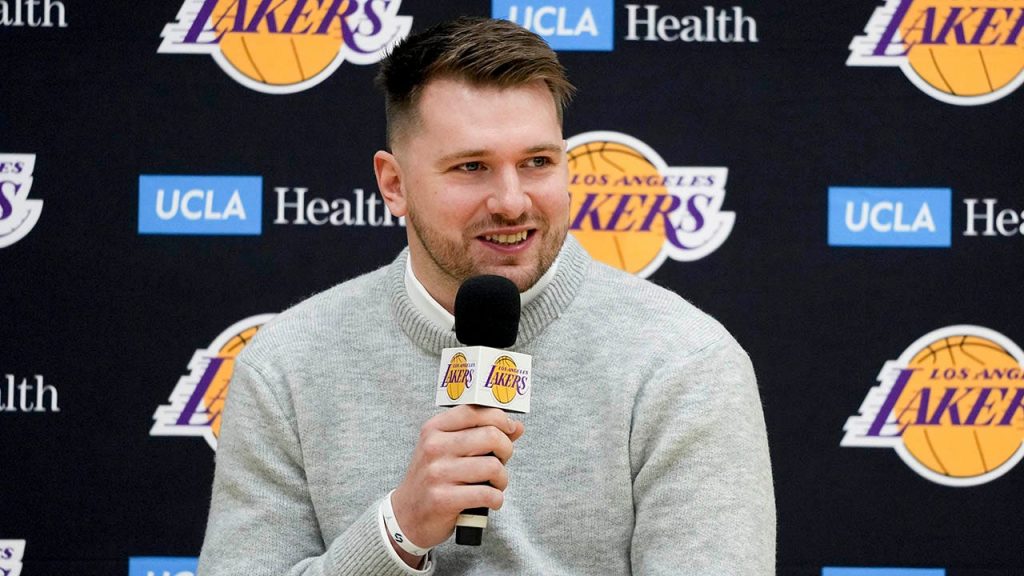The seismic trade that shook the NBA landscape, sending Luka Doncic to the Los Angeles Lakers in exchange for Anthony Davis and Max Christie to the Dallas Mavericks, continues to reverberate through the league. Doncic, a five-time All-Star and All-NBA selection, and reigning scoring champion who led the Mavericks to the NBA Finals just last season, was formally welcomed by the Lakers organization, marking the beginning of a new era for the storied franchise. Meanwhile, Davis and Christie begin their assimilation into the Mavericks’ system, leaving a void in Los Angeles while promising a new dynamic in Dallas. The trade has sparked widespread discussion and speculation about the future of both teams and the league as a whole.
Adding fuel to the speculative fire, Chamath Palihapitiya, former minority owner of the Golden State Warriors, offered intriguing insights into his decision to divest from the NBA franchise. He posits that a significant factor in his departure was the anticipation of a formidable competitor emerging to challenge the NBA’s dominance, akin to the disruptive impact of LIV Golf on the PGA Tour. This projection stems from Palihapitiya’s analysis of the Doncic trade, which he views as a potential catalyst for such a competitive landscape shift. He suggests that the Mavericks, now under new ownership with ties to the casino industry, might be strategically positioning themselves for relocation to a state with legalized sports gambling, leveraging Doncic’s departure as a necessary maneuver.
Further fueling the intrigue, Palihapitiya speculated on the ideal figurehead for a hypothetical rival league, proposing LeBron James as the optimal choice for commissioner. This suggestion aligns with recent reports of James’ business partner, Maverick Carter, seeking substantial investment to launch a new international basketball league. While James himself is not directly involved in this venture, the convergence of these developments paints a picture of potential disruption in the established basketball order. Palihapitiya envisioned a scenario where this new league could acquire both Doncic and James, offering lucrative contracts and leadership positions to attract top talent and challenge the NBA’s hegemony.
This hypothetical league, as outlined by Palihapitiya, could capitalize on the perceived vulnerabilities of the NBA, potentially offering players more lucrative contracts, greater ownership stakes, and a more globally focused platform. The emergence of such a competitor could force the NBA to re-evaluate its current structure and adapt to a changing landscape. The potential ramifications are vast, from player movement and salary structures to media rights and global fan engagement.
Doncic himself expressed his astonishment at the trade, initially believing it to be a prank. The shock of leaving Dallas, a place he considered home, was palpable, yet he acknowledged the excitement of joining the Lakers, a franchise steeped in history and success. This transition represents a significant turning point in Doncic’s career, offering him the opportunity to play alongside LeBron James and compete for a championship in one of the league’s most iconic markets. The pairing of Doncic and James creates a formidable duo, potentially reshaping the power dynamics of the Western Conference and the league as a whole.
The ripple effects of the Doncic trade extend beyond the two teams involved, impacting the broader NBA landscape and potentially paving the way for a new era of competition. Palihapitiya’s insights, combined with the reported efforts of Maverick Carter, suggest a growing appetite for alternative basketball leagues. While the realization of these speculative ventures remains uncertain, the very possibility highlights the dynamic and evolving nature of professional sports, where established hierarchies can be challenged and new opportunities can emerge. The Doncic trade serves as a catalyst for this ongoing conversation, prompting reflection on the future of the NBA and the potential for disruptive forces to reshape the global basketball landscape.


